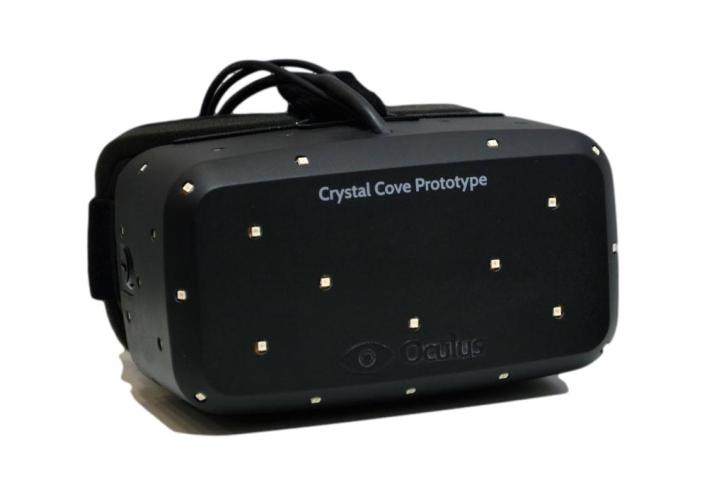
That’s a little later than expected. CEO Brendan Iribe said last June he expected a 2015 ship date, but “changes to [the] roadmap” made that unfeasible, Luckey told a panel at SXSW in March.

In addition to details regarding “software, input, and many of our unannounced made-for-VR games and experiences coming to Rift,” final specifications will be announced next week. No indication was given as to price, unfortunately — the company’s co-founders said previously the company is shooting for between $200 and $400, or “as cheap as possible” given “scale, pre-orders, the components we end up using, [and] business negotiations,” Luckey told Eurogamer late last year.
The first iteration of Oculus VR retailed for $300, but that’s not an entirely reliable benchmark — the hardware has advanced significantly since then. The Rift DK2, the second revision, jumped in display resolution from 640 x 800 per eye to 960 x 1,080 per eye and gained an onboard CMOS sensor for position tracking. The latest version, Crescent Bay, added a pair of built-in headphones and more accurate sensors.
Many analysts credit Oculus with jump-starting the modern incarnation of headset virtual reality, and the company’s lofty vision is certainly in line with that perception. Oculus, which optimistically said its hardware is set to “transform gaming, film, entertainment, communication and much more” in a press release, is positioning its headset as the definitive medium for virtual reality consumption.
To that end, Oculus launched Story Studio, an arts and animation division led by former Disney employees, last year. The studio, which Supervising Technical Director Max Planck said is tasked with “creating VR art, figuring out the storytelling requirements of the medium and evangelizing the platform,” debuted the virtual reality short Lost at the Sundance film festival. It has five more productions planned for this year alone.

But Oculus isn’t the only kid on the block anymore — virtual reality is a growing industry. Samsung partnered with Oculus to release Gear VR, a peripheral for its Note and Galaxy line of smartphones. Sony plans to start selling Morpheus, a virtual reality add-on for the company’s PlayStation 4 console, in the first half of next year. And the HTC Vive, hardware borne out of a partnership with software developer Valve, will go on sale by the end of this year.
It’s unclear whether Oculus VR, which has had the longest incubation period of any virtual reality hardware, will be able to overcome the medium’s biggest usage barriers; input and latency. Conventional controllers like gamepads and keyboards aren’t necessarily well suited for interacting with objects in an immersive environment, obviously. Sony and Valve’s approaches revolve around object motion tracking, but Oculus has yet to reveal its own solution. Latency, meanwhile, continues to plague all headsets — people with a high sensitivity to motion have a tendency to become ill while wearing them. Oculus has made some headway in reducing nausea-inducing lag, but hasn’t completely managed to eliminate it.
Despite those and other challenges, Iribe told Ars Technica the company expects to sell “north of a million units” for the consumer Rift headset. Facebook CEO Mark Zuckerberg was a little less conservative in comments he made last October — he’s shooting for sales of “50 to 100 million” units within the next 10 years.
Editors' Recommendations
- Meta Quest 4: Here’s what we want from the next big VR headset
- If you want a Quest 2, buy one before it gets a big price hike next week
- Meta wants its next VR headset to replace your laptop
- Best free games on Oculus Quest 2
- Pimax’s 12K QLED VR headset wants to take virtual reality to the next level


